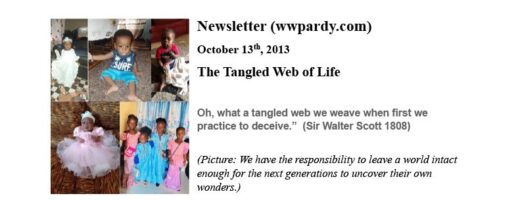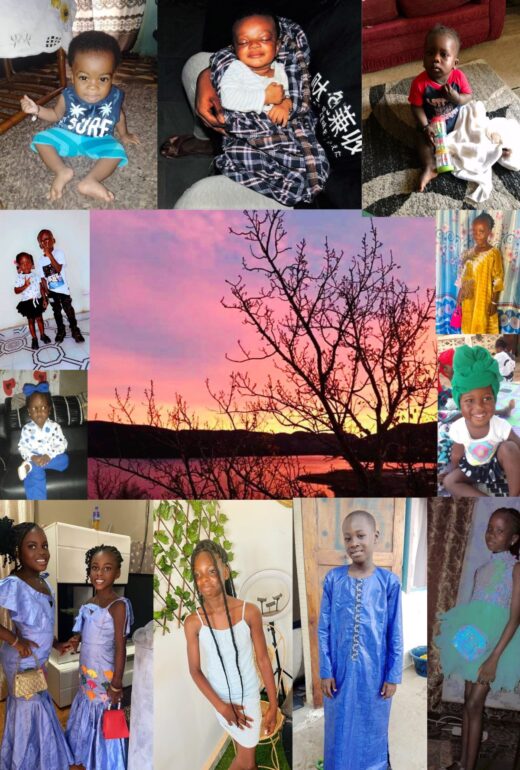Trust (belief in oneself and others) is diminishing amid the flurry of news items portraying sadistic crimes, police brutality, and abuse of all sorts. Study after study produces statistics depicting evident ills inflicted on every segment of society. Political systems are under duress, justice systems are in chaos and most religions face challenges to tradition. There appears to be no one to trust and less and less reason to do so. People wonder how they will ever trust again.
Peace of mind, a corollary of trust, also appears ever more elusive in an era that so recently offered so much promise and opportunity. The never ending pursuit of the good life and its perks has led down a road of increasing despair and uncertainty. Comfortable lives are suddenly overturned, curtailed as the burgeoning baby boom generation reaches its age of reflection. Perhaps, in trying to replace the idealism of youth with ever increasing creature comforts, this generation felt that personal luxury might provide happiness and peace.
The growing sense of despair is deepening this reflection. It is becoming apparent that all is not perfect; in fact, an artificial lifestyle has been built on a foundation that is becoming increasingly less sustainable. People work at jobs that are unfulfilling but pay salaries adequate to purchase materials and activities that give the illusion of balance. As economic limits of existing systems are reached and conventional employment reduced, the demands of the workplace now increase former time schedules. People struggle with having to commit more effort to careers that provide little satisfaction.
While tolerance for differences shrinks, anger grows, and fear expands that somehow life is out of control. The cry is for someone to fix it, and to do so quickly. The backlash is often swift when the fix is neither immediate nor without pain.
Issues are researched with statistics designed for another era; questionnaires are skewed to ensure the answers that are sought. All this to demonstrate how devastated people are, how abused everyone is and how desperate life has become. The result is a society where practically everyone feels a victim of some atrocity or other. The reality is somewhat different. What is experienced by the majority are life’s ordeals and encounters, some of which are truly tragic but most of which are not life threatening or permanently harmful. Oftentimes these tribulations act to shift individuals out of some complacency that has entered their lives. Real tragedy and victimization are diminished when there is such superficial analysis.
What is usually neglected in this research is in-depth analysis of the root causes of the malaise. What is often misunderstood is that inner anger is one’s own frustration at self-intransigence and unwillingness to do what might be in one’s own best interests. There are genuine cases where societal pressures and impediments limit a person’s ability to rectify hardships. But there are also numerous examples to demonstrate that individuals can overcome horrendous obstacles and handicaps and achieve good lives and fulfilment. Certainly these achievements are not without risk or cost.
Inner rage results from feelings of rejection and ensuing fears that have become so pervasive that people are turning more and more inward. These feelings are exacerbated, increasing paranoia. Internal rage appears to be the root of much of the abuse that we are witnessing as people look for those who are to blame and those who should be punished. This rage often results in self-abuse and diminishment and a continuum of self-defeating activities and a search for others to punish.
Eradicating all human ills and abuse is idealistic at best and would necessitate cultural harmony and human engineering that is presently beyond the scope of humanity. But better understanding of root causes of fear and greater tolerance of differences would assist in limiting the extent of the harm that is inflicted by individuals on each other. Ultimately, there has to be a greater appreciation of the gift of life and living.
Moving beyond the concept of “human brokenness” that appears to prevail, and that has been encouraged by most western religions, is fundamental. Understanding instead that the human form is but an incomplete `masterpiece’ to be moulded by experiences that come our way, through design or desire, might alleviate the fears and their resulting pervasive destructiveness. Realising that life, despite its inequities, inevitably shapes our individualism and character, is fundamental to human enlightenment.
Life’s pain and suffering may not be lessened through such awareness, but it might become more tolerable. Healing is possible when people realize that scars are not wounds but records of our resilience and fortitude. The wounds themselves are merely superficial sculpt marks that add to our allure.
There must be renewed focus on life as a spiritual journey. Trust is necessary in a power that is far greater than the human mind can comprehend, abstract as many might perceive it to be. This is relatively simple to substantiate in a world where conventional and developed logic and theories are proved redundant as new information and knowledge emerge. The timeless and ancient wisdom of philosophers and spiritual prophets stills holds even in this `advanced’ and `modern’ era. Revisiting these values would do more for peace and stability and renewed trust than all the social and technical developments that are current measures of progress.
There has to be renewed trust in individuals and in humanity, and a restored belief that humans do not have ultimate power or control. Natural disasters such as earthquakes and floods demonstrate this. Even engineered earthquake proofing fails the test.
Stories must be shared of endurance and suffering that have led to greater fulfilment by those who have had faith in themselves and their world. The all-pervasive media will have to learn more about what is positive in society which, it could be demonstrated, is the majority of experiences. Showcasing the most negatives aspects of humanity has to desist. Those that would espouse to be leaders will have to become the examples by being willing to lead and take the first risks by trusting their electorates and followers. Individuals will have to learn to trust themselves and their own instincts, and put less trust in others to solve their problems.
So much of the current perception of life could be altered with a fresh look and a different attitude. The privileged lives, when compared to others, of those in the developed world might be preserved with more openness, caring and affirmation (foreign visitors are often intrigued by our despair in the midst of such apparent “opulence”).
The key lies in renewed trust in individual capabilities and greater respect for the spiritual nature of human existence. This is an internal process and doesn’t happen through external environments or material possessions. The result will afford serenity, contentment and peace.


